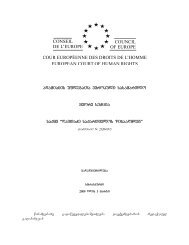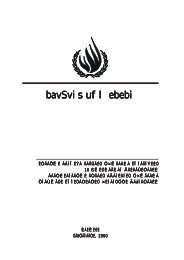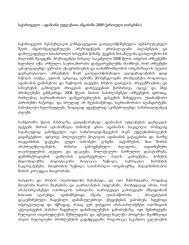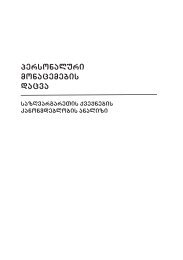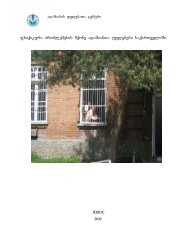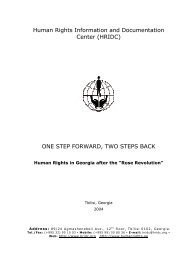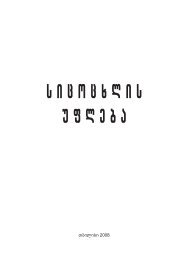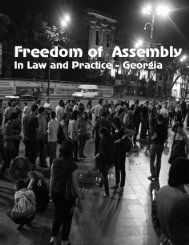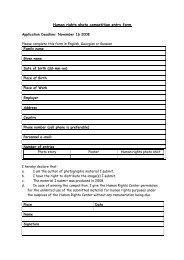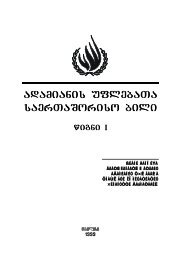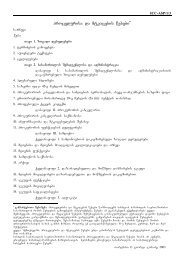Intermediate Report Research of Pre-election Period - The Human ...
Intermediate Report Research of Pre-election Period - The Human ...
Intermediate Report Research of Pre-election Period - The Human ...
Create successful ePaper yourself
Turn your PDF publications into a flip-book with our unique Google optimized e-Paper software.
<strong>election</strong>s. <strong>The</strong> application <strong>of</strong> this law by the responsible administrative bodies is also<br />
important.<br />
<strong>The</strong> basis for Georgian <strong>election</strong> legislation includes the Constitution <strong>of</strong> Georgia (1995),<br />
Election Code <strong>of</strong> Georgia (organic law <strong>of</strong> Georgia adopted on December 27, 2011; went into<br />
force on January 10, 2012), organic law <strong>of</strong> Georgia on Political Unions <strong>of</strong> Citizens, Criminal<br />
Code <strong>of</strong> Georgia, Administrative Code and the legal acts <strong>of</strong> the <strong>election</strong> administration.<br />
It is noteworthy that the ruling party – United National Movement – has an absolute<br />
majority in the Parliament <strong>of</strong> Georgia. It is entirely possible for them to adopt relevant laws<br />
and initiate constitutional amendments in the parliament in line with the concrete interests<br />
<strong>of</strong> the party.<br />
For example, 9 months before the parliamentary <strong>election</strong>s, the Georgian Parliament adopted<br />
a new organic law on the Election Code <strong>of</strong> Georgia at its third hearing and introduced<br />
relevant amendments to the organic law <strong>of</strong> Georgia on Political Unions <strong>of</strong> Citizens and to the<br />
Criminal Code <strong>of</strong> Georgia with regard to restrictions <strong>of</strong> party funding and vote-buying issues.<br />
It is worth noting that before the draft <strong>election</strong> code was drawn up, 8 main opposition<br />
political parties (the so-called Opposition Eight) declared a desire to participate in the<br />
formulation <strong>of</strong> the new <strong>election</strong> law through dialogue with the government. In the first<br />
stages, some progress was achieved in this direction but in the end no large-scale political<br />
agreement on the <strong>election</strong> system was achieved and the so-called Opposition Eight fell apart.<br />
<strong>The</strong> ruling party had the advantage in these negotiations; if consensus was not achieved, they<br />
had the authority to pass a legislative decision, so achieving consensus relied on their<br />
goodwill. So, in December 2011 the Parliament <strong>of</strong> Georgia adopted the law without<br />
widespread political agreement. 7<br />
7<br />
you can find main gaps in the <strong>election</strong> code <strong>of</strong> Georgia in the <strong>Intermediate</strong> <strong>Report</strong> <strong>Research</strong> <strong>of</strong> <strong>Pre</strong>-Election <strong>Period</strong> on the following<br />
link: http://www.humanrights.ge/admin/editor/uploads/pdf/HRIDC_Election_Interim_Eng%20(3).pdf<br />
12



